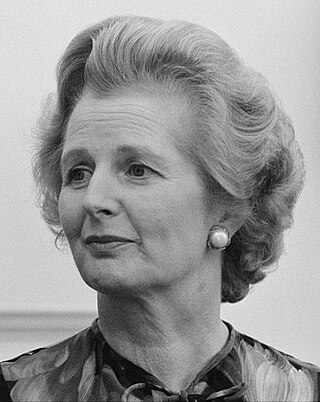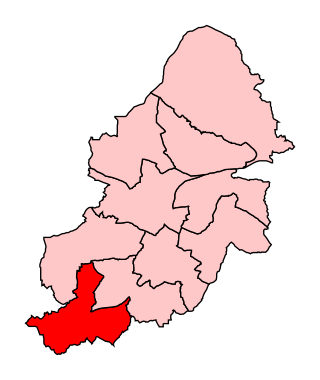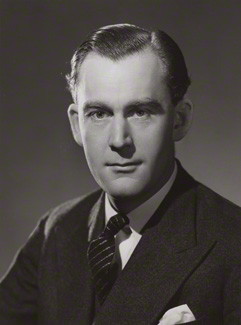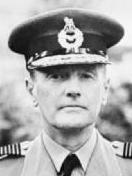
The 1979 United Kingdom general election was held on Thursday 3 May 1979 to elect 635 members to the House of Commons.

The 1983 United Kingdom general election was held on Thursday 9 June 1983. It gave the Conservative Party under the leadership of Margaret Thatcher the most decisive election victory since that of the Labour Party in 1945, with a majority of 144 seats and the first of two consecutive landslide victories.

Sir Anthony John Charles Meyer, 3rd Baronet was a British soldier, diplomat, and Conservative and later Liberal Democrat politician, best known for standing against Margaret Thatcher for the party leadership in 1989. In spite of his staunch conservative views on economic policy, his passionate support of increased British integration into the European Union led to him becoming increasingly marginalised in Thatcher's Conservative Party.

Birmingham Northfield is a constituency represented in the House of Commons of the UK Parliament since 2019 by Gary Sambrook, a Conservative. It represents the southernmost part of the city of Birmingham.
The 1989 Conservative Party leadership election took place on 5 December 1989. The incumbent Margaret Thatcher was opposed by the little-known 69-year-old backbencher MP Sir Anthony Meyer. It was the Conservative Party's first leadership election for nearly 15 years, when Thatcher had taken the party leadership.

Sir Thomas Galloway Dunlop Galbraith, known as Tam Galbraith, was a Scottish Unionist politician.
The Croydon North West by-election took place on 22 October 1981. It was caused by the death of Conservative Member of Parliament Robert Taylor on 18 June 1981.

The 1977 Ashfield by-election was held on 28 April 1977 in the Ashfield constituency in the coal mining area of Nottinghamshire, following the resignation of Labour Member of Parliament David Marquand. Conservative candidate Tim Smith was the narrow winner in what was thought to have been a very safe Labour seat.

The 1982 Beaconsfield by-election was a parliamentary by-election held on 27 May 1982 for the British House of Commons constituency of Beaconsfield in Buckinghamshire.
In the United Kingdom, general elections occur at least every five years. About 650 constituencies return a member of Parliament. Prior to 1945, electoral competition in the United Kingdom exhibited features which make meaningful comparisons with modern results difficult. Hence, unless otherwise stated, records are based on results since the 1945 general election, and earlier exceptional results are listed separately.

A Glasgow Hillhead by-election was held on 25 March 1982. The by-election was caused by the death of the Conservative Party Member of Parliament for Glasgow Hillhead Tam Galbraith on 2 January 1982.
The 1929 Bishop Auckland by-election was a parliamentary by-election held on 7 February 1929 for the British House of Commons constituency of Bishop Auckland in County Durham.

The 1981 Crosby by-election was a by-election held in England on 26 November 1981 to elect a new Member of Parliament (MP) for the House of Commons constituency of Crosby on Merseyside. It followed the death of Crosby's MP Sir Graham Page, of the Conservative Party.
The 2008 Glasgow East by-election was a by-election for the UK Parliamentary constituency of Glasgow East which was held on 24 July 2008. The election was triggered when, on 30 June 2008, the sitting MP David Marshall stood down due to ill health.

The Glasgow Queen's Park by-election, 1982 was a parliamentary by-election held on 2 December 1982 for the House of Commons constituency of Glasgow Queen's Park.
There was a by-election for the constituency of Rutherglen in the House of Commons on 14 May 1964, not long before the 1964 general election.
The 1939 Batley and Morley by-election was a parliamentary by-election held in the United Kingdom on 9 March 1939 for the House of Commons constituency of Batley and Morley in the West Riding of Yorkshire.

The 1942 Grantham by-election was a parliamentary by-election for the British House of Commons constituency of Grantham on 25 March 1942.

The Social Democratic Party (SDP) was a centrist to centre-left political party in the United Kingdom. The party supported a mixed economy, electoral reform, European integration and a decentralised state while rejecting the possibility of trade unions being overly influential within the industrial sphere. The SDP officially advocated social democracy, but its actual propensity is evaluated as close to social liberalism.

A general election was held in the United Kingdom on Thursday, 11 June 1987 and all 72 seats in Scotland were contested.














